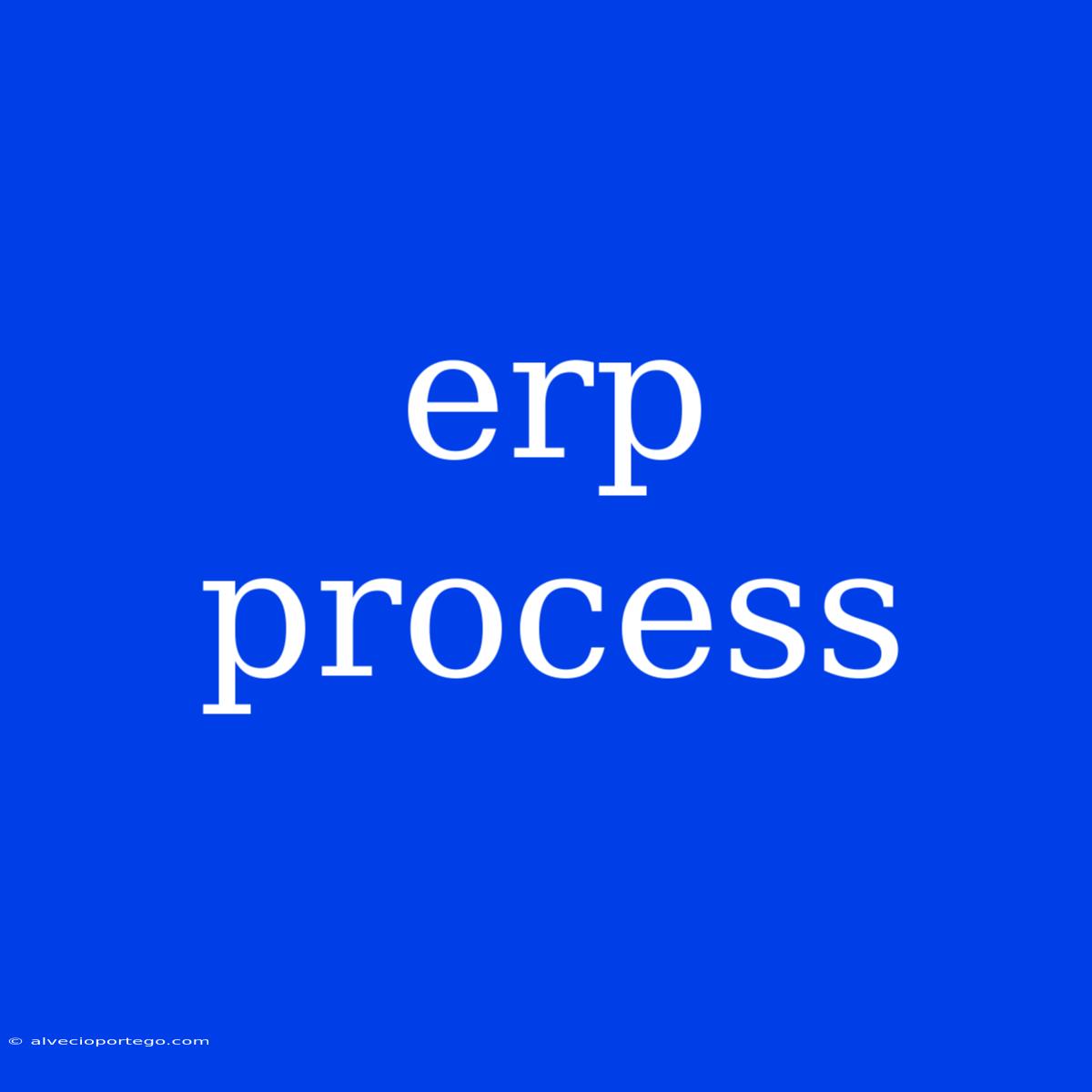What is an ERP Process?
An ERP (Enterprise Resource Planning) process is a comprehensive approach to managing an organization's core business processes using a single, integrated software system. This system connects various departments and functions, enabling seamless data sharing and improved efficiency across the entire enterprise.
Key Components of an ERP Process
1. Planning and Implementation:
- Needs Assessment: Identifying the organization's specific needs and goals for an ERP system.
- Selection and Procurement: Choosing the right ERP software solution based on the needs assessment.
- Implementation: Setting up the ERP system, configuring it, and integrating it with existing systems.
2. Core Business Processes:
- Financial Management: Tracking financial transactions, managing accounts payable and receivable, budgeting, and reporting.
- Human Resources: Managing employee data, payroll, benefits, and recruitment.
- Supply Chain Management: Planning, purchasing, inventory control, and logistics.
- Production Management: Managing production processes, scheduling, and quality control.
- Customer Relationship Management (CRM): Managing customer interactions, sales, and marketing.
3. Data Management:
- Data Integration: Combining data from various sources into a single, unified database.
- Data Security: Protecting sensitive data from unauthorized access.
- Data Analysis: Using data to gain insights into business performance, identify trends, and make informed decisions.
4. Reporting and Analytics:
- Real-time Reporting: Providing immediate access to key performance indicators (KPIs).
- Business Intelligence: Using data analytics to identify areas for improvement and optimization.
- Decision Support: Helping managers make informed decisions based on accurate and timely data.
Benefits of an ERP Process
- Improved Efficiency: Streamlining business processes and eliminating redundancies.
- Enhanced Data Visibility: Providing a centralized view of data across the organization.
- Better Decision-Making: Facilitating data-driven decision-making.
- Increased Productivity: Automating tasks and freeing up employees for more strategic work.
- Reduced Costs: Optimizing operations and minimizing waste.
- Improved Customer Service: Providing better customer support and satisfaction.
Implementation Challenges
- Cost and Time: ERP implementations can be expensive and time-consuming.
- Complexity: Implementing a complex ERP system can be challenging.
- Change Management: Employees may resist changes to their workflows and processes.
- Data Migration: Moving data from legacy systems to the new ERP can be complex.
Conclusion
An ERP process can significantly transform an organization's operations by automating tasks, improving data visibility, and enabling better decision-making. While implementing an ERP system can present challenges, the potential benefits for efficiency, productivity, and profitability make it a worthwhile investment for many businesses.

